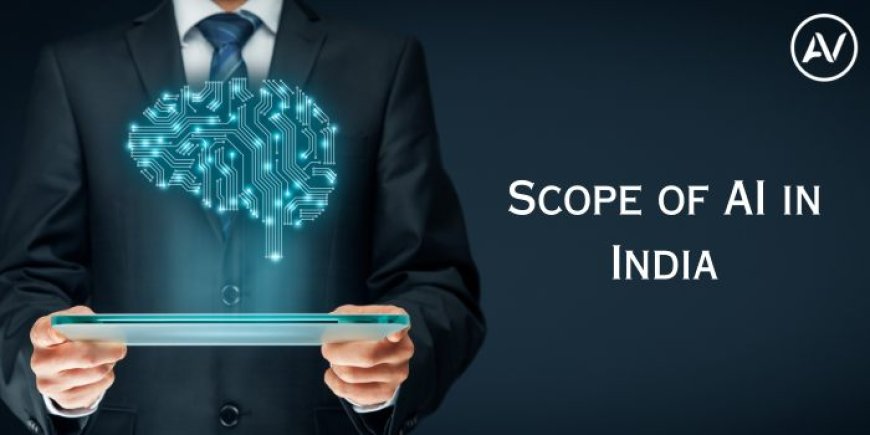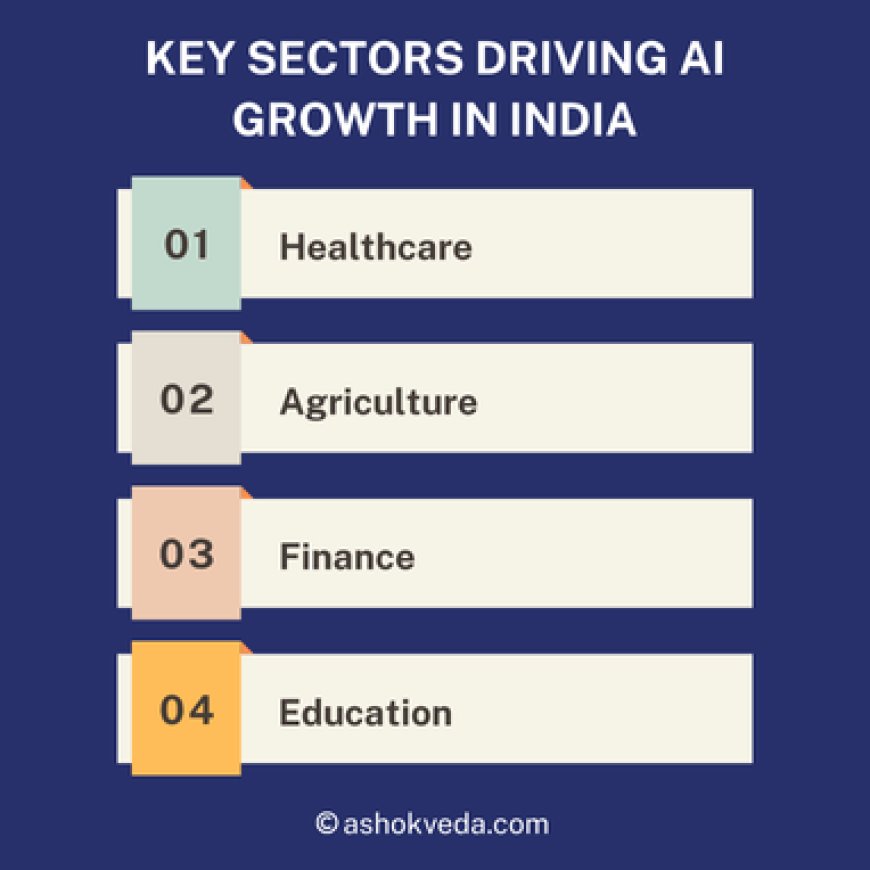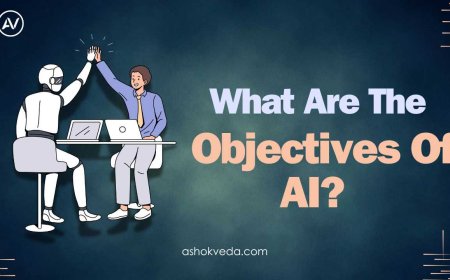Explore Scope of AI in India with Expert
Stay updated on how Artificial Intelligence is influencing different sectors in the country. Explore the evolving situation and scope of AI in india

Artificial Intelligence (AI) is growing faster than ever before, the progress in areas like machine learning, natural language processing, and robotics are huge. AI is more than just a new technology; it's a critical tool that's changing industries by making them more efficient and helping to tackle complex problems worldwide. It's transforming sectors such as healthcare, education, finance, and agriculture, making their operations smarter.
India is becoming a major force in the AI field with its strong IT setup and a large pool of skilled professionals. It stands out in the global AI scene by using its expertise in information technology and software services to push forward AI development, draw in investments, and encourage new ideas. The country's focused efforts on AI research and practical uses show its dedication to adopting this game-changing tech. As India moves forward with AI, it's set to not only change its own industries but also make a big impact on the worldwide AI movement, positioning it as a crucial market in the expanding world of AI.
Current State of AI in India
India's artificial intelligence (AI) ecosystem is rapidly evolving, marked by significant contributions from key players across various industries. This includes technology giants, startups, academic institutions, and government bodies, collaboratively fostering an environment ripe for AI-driven innovation. The country's major IT hubs, such as Bengaluru, Hyderabad, and Pune, are at the forefront of this transformation, serving as incubators for AI research and development.
AI adoption in India is witnessing an upward trajectory, with sectors like healthcare, finance, retail, and agriculture leading the charge. According to recent reports, the adoption rates have seen a notable increase, reflecting a growing recognition of AI's scope to enhance operational efficiencies and customer experiences. The government has played a pivotal role in this expansion, launching initiatives such as the National Strategy for Artificial Intelligence and the AI for All campaign. These programs aim to promote AI literacy, develop ethical AI frameworks, and encourage public-private partnerships to drive innovation.
Key Sectors Driving AI Growth in India
Healthcare:
Advancements in AI for Diagnostics, Treatment, and Patient Care
-
Introduction to AI in Healthcare: Outline AI's role in revolutionizing healthcare through enhanced diagnostics, treatment options, and patient care.
-
Diagnostics: Detail AI-powered diagnostic tools that enable early detection of diseases like cancer, diabetes, and heart conditions with higher accuracy and efficiency.
-
Treatment: Discuss AI's contribution to developing personalized treatment plans, including precision medicine and robotic surgery, improving patient outcomes.
-
Patient Care: Highlight AI applications in monitoring patient health in real-time, telehealth services, and chatbots providing preliminary health advice, improving accessibility and efficiency.
-
Future Prospects: Explore ongoing research and potential future breakthroughs in AI that could further revolutionize healthcare in India.
Agriculture:
AI Applications in Crop Assessment, Weather Prediction, and Farming Efficiency
-
Current State of AI in Agriculture: Brief overview of AI's integration into the agricultural sector, focusing on crop assessment, weather prediction, and overall farming efficiency.
-
Crop Assessment: Explain how AI-driven image recognition technologies assess crop health, predict yields, and identify pest threats, leading to informed farming decisions.
-
Weather Prediction: Detail AI's role in analyzing weather data to provide accurate forecasts, helping farmers plan sowing, irrigation, and harvesting more effectively.
-
Farming Efficiency: Discuss AI's impact on optimizing resource use (water, fertilizers) and automating tasks (weeding, harvesting), leading to sustainable farming practices.

Finance:
AI's Role in Fraud Detection, Customer Service, and Personalized Banking
-
Introduction to AI in Finance: Overview of how AI is transforming the financial sector, enhancing security, customer service, and offering personalized banking experiences.
-
Fraud Detection: Explain how AI algorithms detect unusual patterns indicative of fraud, significantly reducing the risk of financial losses.
-
Customer Service: Highlight the use of AI in developing chatbots and virtual assistants that provide 24/7 customer service, improving customer satisfaction and engagement.
-
Personalized Banking: Discuss AI's capability to analyze customer data, offering personalized financial advice and product recommendations, enhancing the banking experience.
-
Future Directions: Consider the ethical implications and the need for robust data protection measures as AI continues to evolve in the financial sector.
Education:
Personalized Learning, Automated Grading, and AI in Educational Administration
-
AI's Impact on Education: Introduction to the transformative potential of AI in education, from personalized learning paths to administrative efficiency.
-
Personalized Learning: Detail how AI curates customized learning experiences for students, adapting to their learning pace, style, and interests, enhancing engagement and outcomes.
-
Automated Grading: Discuss the use of AI in grading assignments and exams, saving time for educators and providing immediate feedback to students.
-
Educational Administration: Highlight AI's role in streamlining administrative tasks, predictive analytics for enrollment, and improving the overall efficiency of educational institutions.
-
Challenges and Future Prospects: Address the digital divide and the importance of equitable access to AI-powered education tools, looking ahead to future innovations.
Manufacturing:
Predictive Maintenance, Supply Chain Optimization, and Smart Manufacturing
-
AI in Manufacturing: Overview of AI's application in modernizing manufacturing processes, from predictive maintenance to smart manufacturing.
-
Predictive Maintenance: Explain how AI predicts equipment failures before they occur, reducing downtime and maintenance costs.
-
Supply Chain Optimization: Detail AI's role in optimizing supply chain operations, from inventory management to logistics, enhancing efficiency and reducing costs.
-
Smart Manufacturing: Discuss the integration of AI in manufacturing operations for real-time monitoring, quality control, and automation, leading to increased productivity and innovation.
-
Looking Ahead: Consider the potential for AI to further transform manufacturing, including the integration of IoT devices and smart factories, alongside the challenges of technology adoption and workforce adaptation.
Implementation Strategies
-
Case Studies: Incorporate real-life examples where overcoming these challenges has led to significant advancements or innovations in AI within India.
-
Data and Research: Use recent studies, surveys, and reports to provide a solid foundation for discussing challenges and opportunities, ensuring the content is relevant and fact-based.
-
Expert Opinions: Include insights from industry leaders, academics, and policymakers to offer a well-rounded perspective on overcoming challenges and seizing opportunities in AI.
-
Future Projections: Analyze trends to predict how current challenges could transform into opportunities for growth in the AI sector in India.
Government and Industry Initiatives
A. Government Initiatives Aimed at Fostering AI Growth
National Strategy for Artificial Intelligence
-
Overview of the government's vision and strategy for AI, including objectives, key areas of focus, and expected outcomes.
-
Mention specific programs or policies designed to support AI development, such as funding for research, AI incubators, or educational reforms.
AI Research Institutes and Centers of Excellence
-
Details on the establishment of AI-specific research institutes and Centers of Excellence across India to foster innovation and skill development.
-
The role these centers play in advancing AI technology and knowledge.
Regulatory Frameworks and Policies
- Discussion on the implementation of data protection laws, AI ethics guidelines, and standards to ensure responsible AI development.
- How these regulations are designed to create a supportive ecosystem for AI growth.
Partnerships and Collaborations
-
Initiatives undertaken in partnership with other countries, international organizations, and the private sector to promote AI research and application.
-
Examples of collaborative efforts aimed at solving societal challenges through AI.
B. Private Sector Investments and Collaborations
Corporate Investments in AI Startups
-
Insights into how Indian and multinational corporations are investing in AI startups, including funding rounds, acquisitions, and mentorship programs.
-
The impact of these investments on the AI ecosystem in India.
Innovation Labs and R&D Centers
- The establishment of corporate innovation labs and research and development centers focused on AI technologies.
-
How these facilities contribute to the development of new AI applications and solutions.
Collaborations with Academia
- Examples of private companies partnering with universities and research institutions to drive AI innovation.
- Focus on initiatives like joint research projects, scholarships for AI studies, and the creation of specialized AI courses.
Industry Consortia and Alliances
- The formation of industry groups and alliances to advocate for AI policies, share best practices, and collaborate on research.
- The role of these consortia in standardizing AI practices and fostering a collaborative ecosystem.
As we look toward 2024, the scope of AI in India is poised for significant expansion, driven by strategic investments, policy support, and a growing ecosystem of innovation. With the government and private sector jointly nurturing the growth of AI technologies, India stands at the cusp of a technological renaissance that promises to transform industries, enhance quality of life, and boost economic prosperity. Adopting AI with a focus on sustainable and inclusive growth will not only position India as a global AI leader but also ensure that the benefits of AI advancements are accessible to all segments of society, marking a new chapter in India’s digital evolution by 2024.
Also refer:





































